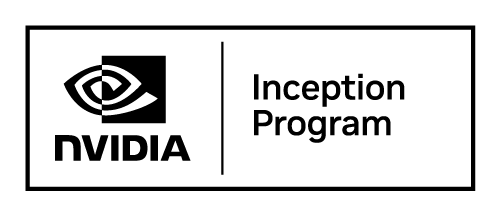Did you know that a whopping 77% of job seekers have been ghosted by an employer at some point? 10% were even left hanging after getting a verbal job offer. It's tough to think of anything more frustrating than spending weeks on an application, only to get zero interview feedback after.
Hiring managers and recruiters should not ignore candidates after reviewing their resumes. If you take the time to do a phone or Zoom interview, you can take the time to let them know they aren’t getting the job.
The good news is that if you’re reading this, you’re already on the right track by looking for job rejection email templates. To save you time, I’ve created three effective employment rejection email templates, each for a different stage of the hiring process, along with a brief explanation of why our rejection email examples work at the end.
Application rejection email
The necessity of sending a rejection email after an application is up for debate.
Some people argue that many job applicants are applying to dozens, if not hundreds, of roles.
They may not even remember half of them after sending in their applications, especially if the job description or company wasn’t memorable.
By sending an applicant rejection email, you may just be reminding them of something they’d already moved on from or even forgotten about in the first place.
Others believe that anyone who takes the time to apply deserves an update on their application's status.
If you lean towards the latter approach, we suggest keeping it simple (as seen with the controversy sparked by Doorloop’s more inspirational take).
You can use the following job rejection email template after you’ve reviewed someone’s application.
Rejection email after application
Rejection email: 1st interview
The question at this point is whether the candidate deserves individualized feedback or a more templated response.
I recommend going with a clear and kind templated rejection email, but adding a personal touch with a line or two if the candidate stood out in some way or if there's helpful feedback I can share on their skills and experience. It’s a great way to keep things efficient while still showing you care and recognizing their effort.
Rejection email template after interview
Rejection email: 2nd interview
Rejecting candidates after a second interview is tough because they’ve already invested a lot of time and effort into the recruitment process.
At this stage, people often expect a bit more than a generic rejection, so it’s important to acknowledge the time they put in and give thoughtful feedback. The trick is to keep it clear and professional, but still human—don’t dive into too many details, but make sure you’re being transparent.
A little gratitude and encouragement can go a long way in your rejection letter after interview, especially if you want to leave the door open for future opportunities. Using a warm, empathetic tone makes all the difference in turning a rejection into a positive experience.
Position no longer available
When a job gets closed, it’s important to let candidates know in a clear but kind way. Below is a simple "position has been filled template" that explains the situation while still showing appreciation for their interest. It keeps things professional but friendly, leaving them with a positive vibe about your company.
Interview rejection email template
If you're a candidate who is no longer interested in a role you've been interviewing for, you can send this job denial email.
This email is polite, professional, and appreciative. It clearly communicates the decision to withdraw, while expressing gratitude for the opportunity. The tone is respectful, maintaining a positive impression with the company, which is helpful for future networking or opportunities.
Rejection email for job
The best rejection email subject line
Writing a rejection email isn’t easy, but a thoughtful job rejection email subject line can help set the right tone from the start. It should be clear, respectful, and kind, letting candidates know what to expect without feeling overly formal.
Here are a few tips to craft a strong subject line:
- Be clear but gentle. Use straightforward language like “Update on Your Application for [Position].” This keeps things direct without sounding too blunt.
- Show appreciation. Acknowledge the candidate’s effort with something like “Thank You for Your Interest in [Company Name].” It shows you value their time.
- Keep it positive. Avoid harsh words like “rejection.” Instead, try “Position Update” or “Application Status,” which sound neutral and respectful.
With these small adjustments, your subject line can make the email feel more professional and thoughtful, helping the candidate feel appreciated even if the news isn’t what they hoped for.
The best email template for not hiring someone
With the rise of AI recruiting software, remembering the humans on both sides of the process is more crucial than ever.
Whether you’re using a basic candidate rejection email template or adding a personal touch, your candidate rejection email really matters to your employer brand. With these job rejection templates and tips, you can make sure candidates feel appreciated, even if they didn’t land the job this time.
Plus, a thoughtful employment rejection letter leaves a positive impression and keeps the door open for future opportunities. So, even though saying no is tough, doing it the right way can still make a big difference.
Keeping candidates engaged and informed shouldn’t be a hassle.


